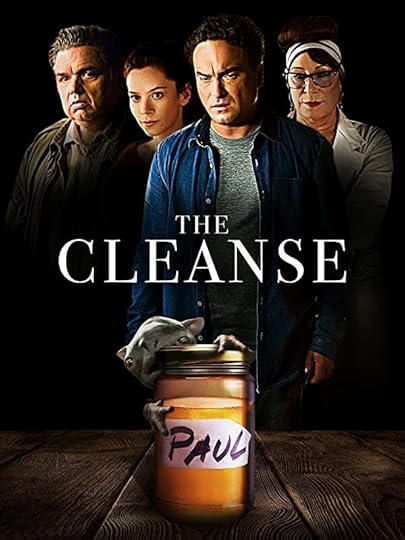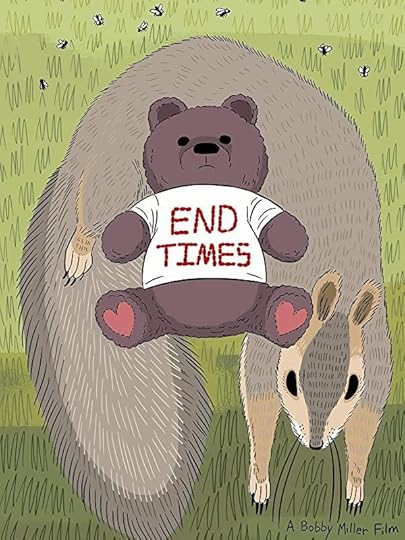Bobby Miller's Blog, page 7
August 10, 2023
Finding Hope During the Strike(s)
Jason Blum, the ultra-successful founder of BlumHouse Productions, was on Deadline’s podcast last week. There was a striking moment on the show where his voice cracked. He was getting emotional.
“Our beautiful business that we love is built on the great work of artists. It drives me crazy that no one is saying, ‘Hey, you all are amazing, thank you for the work that you do. We may not see the deal eye to eye. But we couldn’t survive without your work.’”
Blum interfaces with studio heads in a much different way than artists do. He goes to CEO camp with them. The fact that he’s flummoxed to the point of tears says a lot.
It’s been over 100 days since the WGA struck, and no CEO has voiced a desire to work with artists. In fact, many corporations are bragging about how much money they’re saving by…not making anything.

Bob Iger, the CEO of Disney, called the strikes “unrealistic” and “disturbing.” What’s crazy is that HE was considered the most artist-friendly CEO of the bunch. Many even believed he would step in and mediate at the 11th hour, be the town’s savior. But it turns out he wasn’t the guy.
To quote Fran Drescher, SAG president:
“(Bob Iger) stuck his foot in it so bad. Telling us we’re unrealistic when he’s making $78,000 a day. How do you deal with someone like that who’s so tone-deaf? We need someone with character and courage to go into those boardrooms and say, ‘Listen, we’re doing this all wrong. Why are we doing this anyway? We’re in business with these people. They are who we are building our business off of.'”
Okay. You’re probably wondering when I will pivot to the “hope” mentioned in the title. I’ll get there.
Screenwriter Evan Ball recently wrote a great Twitter thread that details our current moment. It’s a concise read that zeroes in on the feeling permeating the town. I’ve truncated it below. And then, I swear, I’ll get to the hope part.
“At stake is whether the studios want to be businesses that value making a good product that consumers will pay for, or... do they want to be accounting wizards that pull whatever levers they can to manipulate the value of their stock prices?
CEOs now see their job responsibilities as maximizing the value of the company on paper, by any means necessary. Under this incentive structure, the goals are to extract the maximum amount of money from anyone who interacts with the company (employees & consumers alike) while providing the absolute minimum value in return.
Firing hundreds of employees or cutting/denying wages is just as valuable on the balance sheet as a mega-hit movie. Except one is much easier to execute on a whim. This drives a business philosophy that is inherently risk-averse. One that sees employees as obstacles to profit (or at best necessary evils) instead of generators of profit. It values quantity (especially with clickbait value) over quality. And one that values harvesting new consumers over valuing repeat consumers.
We've all seen how this plays out. The increasing dependence on IP, reboots, sequels, and franchises instead of developing new ideas or talent. The devaluation of labor at the heart of this strike. And the raising of prices, crackdown on password sharing, and addition of ad-based streaming on top of the monthly fee you're already paying. -- Studios taking more from everyone, while offering less in return.
Think about the world the AMPTP is proposing. A world where AI writes 1000s of scripts a day, AI is used to bring back past movie stars or own the rights of current actors that could've been movie stars, and the employee count in the industry is drops by orders of magnitude. A world where we're chasing the brilliant creatives of the past so much that we don't allow room for the creative talents of the future to develop their skills.
They're literally willing to destroy an entire industry, one of America's greatest cultural and economic exports. All this so they can reduce movies and television into little more than clickbait marketing tools to keep you watching ads on their platforms, or sell you electronics and cheap trinkets on their marketplaces.
That's not a future we want to see. And that's why we're on strike. But the battle lines aren't just writers & actors vs. studios. They're actually the pillager CEO class vs. writers, actors, directors, crew, junior studio execs, any other industry employees, AND consumers. And THIS is why we must win.”
The fact that statements like this are going viral gives me hope.
A few days ago, underpaid and exploited VFX workers voted to unionize at Marvel. A historic and crucial next step against bloated IP insanity. (If you don’t know how these movies are made, read this.) News of the vote to unionize almost made me tear up.
For years we’ve all pretended the industry was fine. And for the first time (in my lifetime), people are starting to call bullshit. There’s a refreshing transparency, a lack of airs floating around right now.
Writers and Actors are all sharing horror stories online.
There’s no more posturing, no pretending that you’re doing well. For anyone who has worked in Hollywood, you know this is a cardinal sin. You must always appear like you’re doing well because the appearance of success leads to actual success.
Or so we’re told.
Artists are banding together in an unprecedented way for something bigger than themselves. A future that values their work. A course correction for the corporate destruction of America’s greatest export.
We won’t get all the things we want. But there’s hope in finally talking about it.
Thanks for reading Bobby Miller Time! Subscribe for free to receive new posts and support my work.
July 26, 2023
Is Barbie the most subversive mainstream film in years?
In 1999 I got into a car accident.

I’m embarrassed to admit it. But it was after I saw American Beauty for the first time. I was a teenager, working as a movie theater usher, and the film rattled me. This might sound corny now, but I was on a steady diet of mainstream movies at the time. And this dark subversive film was a shock to the system.
I think about that time often. The idea that a dark dramedy (not based on IP) could be a box office and critical hit, a pop culture phenomenon, a multiple Oscar winner. It sounds like a fantasy world.
People were confused when it was announced that Greta Gerwig, hot off her Oscar nominations, would tackle Barbie next. Why would she do that? She must be able to do anything she wants now!
And that used to be true. Before, an Oscar meant you could dictate your next project and make something on your own terms. But now, it means you're viable for someone else’s intellectual property. Sure, you still have value, but its value in service of propping up corporate IP. There are some lucky outliers, filmmakers who don’t have to play the game. But they grow fewer by the day.
People complain about IP franchise movies all the time. “Hollywood’s run out of ideas,” they say. And yet, everyone still goes to these things. Why? Because we’re resigned. We believe it’s the only option. Filmmakers feel it too. Everyone is making the best of a bad situation.
This is a long-winded way of saying I really enjoyed Barbie.
It’s the goofiest bit of mainstream subversion I've maybe...ever seen? A delightful stinkbomb thrown into corporate intellectual property.
It also has style, spectacle, and imagination in ways most CGI-laden superhero movies lack. Real sets too! And even — moments of transcendence. There’s that speech. But for me, it was the Matchbox 20 campfire scene. Perhaps my favorite moment in cinema this year.
In February, I wrote about how AI could write IP-driven films. And that's still true. But, for maximum cultural impact, AI comes up short. It can’t be as subversive or idiosyncratic as the Barbie movie. That only comes with being human.
I waited for the movie to pull back and offer some cloying message, making Barbie palatable for the masses. But it never came. How could this film possibly sell more Barbie dolls?
It got me thinking. Could Gerwig have made something this subversive if it wasn't a Barbie movie? Doesn't a giant bubblegum property like Barbie help set her up for maximum transgression?
(Okay. I know. I’m making Barbie sound like a Todd Solondz or Harmony Korine film. It’s not. Although, I’d argue that Matchbox 20 sequence is on Korine’s wavelength. )
You could argue that this film was the only move Mattel had left. Barbie seems so out of step with our times, and doll sales have fallen. The movie could be a “fuck it, let’s make a few more bucks before it’s all over.”
Sure. But the film is still weird. Still feels like Greta got away with something. Let’s take the win. Our resigned asses deserve it.
Studios usually learn the wrong lessons from success. They see Barbie and think, "Let's make more toy movies.” But the real lesson here is that people are tired of corporate-made slop. Tired of CGI sameness. They don’t want generic Barbies pumped out of an AI assembly line. They want the one made by human hands. The fucked up, weird Barbie. And we should be glad.
Thanks for reading Bobby Miller Time! Subscribe for free to receive new posts and support my work.
July 13, 2023
SAG & WGA strike for the first time in 63 years. United against AI.
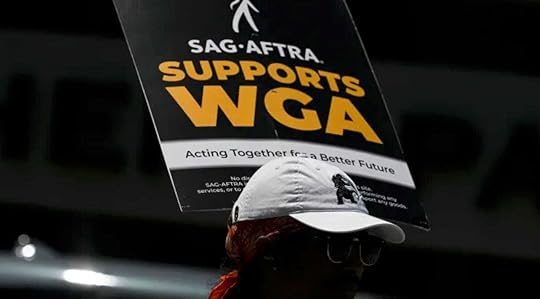
SAG is on strike after negotiations for a new contract expired last night. They join the WGA on the picket line for the first time since 1960. Like the writer’s guild, the actors union sees AI as a “real and immediate threat.”
Part of SAG’s statement this morning reads, “We must get agreement around acceptable uses, bargain protections against misuse, and ensure consent and fair compensation for the use of your work to train AI systems and create new performances…The companies have not shown a desire to take our members’ basic rights to our own voices and likenesses seriously.”
SAG chief negotiator Duncan Crabtree-Ireland clarified the issue at today’s press conference. "(The studios) proposed that our background actors should be able to be scanned, get paid for one day's pay, and their company should own that scan, their image, their likeness and to be able to use it for the rest of eternity in any project they want with no consent and no compensation."
If you’ve read any of my AI pieces, you’ll know one thing to be true. Corporations see an AI future that eliminates artist jobs and cuts costs. And they like it.
AI Lawsuits are piling up, from authors to comedians to class-action cases representing millions. The FTC is also investigating OpenAI. And we’re only talking about the past three days.
But, these lawsuits and investigations will take time. And without government regulations protecting artists, only one line of defense is left.
Unions.
Unfortunately, the DGA blew it with their contract. So now it’s up to SAG and WGA to lead the way. And the world is watching.
The Corporations released a Deadline article on Tuesday night in a desperate last-minute scare tactic. In it, a studio executive said, “The endgame is to allow things to drag on until union members start losing their apartments and losing their houses.”
The propaganda piece blew up in their face. Writers were galvanized by the studios’ move to admit they were the villains, and SAG still chose to strike. The Deadline article was a puzzling move, only highlighting corporate America's disconnect from the boiling-over labor movement. The studios are intent on an old playbook that doesn’t consider post-pandemic resolve, unprecedented union solidarity, or social media dissemination.
 One of many writers galvanized by the Deadline article.
One of many writers galvanized by the Deadline article.So, where is this all heading?
The Animation Guild, who recently announced an AI Task-force, knows where this is heading more than anyone. AI has begun replacing concept art in their industry as well as background painting.
Before AI, animation saw jobs getting sent overseas for non-union labor. Outsourcing animation is nothing new. But, what is new is the outsourcing of key creative crew positions. This trend + AI threatens to cripple animation workers in the US.
The writing is on the wall. If a corporation can save a dime, they will. They’ve openly admitted to preferring artists living on the streets than negotiating for a fraction of their record profits.
Do you honestly think they care if robots replace us?
Thanks for reading Bobby Miller Time! Subscribe for free to receive new posts and support my work.
June 28, 2023
The Apple Watch as Phone deterrent
Friends,
Remember when I wrote: “How I made my iPhone dumber”?
Well, guess what motherfuckers. The things I outlined in that piece lasted several weeks, and then I returned to my old ways. A phone junkie.
My problem is simple. I don’t want to pull out my phone for a text and find myself scrolling through inane bullshit on social media.
Because I will do it.
I have no self-control.
You could say that SituationNowhere.com is slowly documenting an undiagnosed mental illness of mine.
Or you could be nicer to me!!!
Before the Apple Watch, I tried the Jelly smartphone by Unihertz. It’s TINY and cheap. I figured I wouldn't be compelled to doom scroll if the screen was small enough. I kept my iPhone for music & maps in the car. And swapped my SIM card whenever I needed one or the other. It was great! I felt free of my addiction!

Buuuuuut, swapping SIM cards proved tiresome. And Apple’s propriety iMessage was a pain. I wouldn’t see texts on both devices. BOO!
But, then…I had a thought. Something I never tried before…
The Apple Watch.
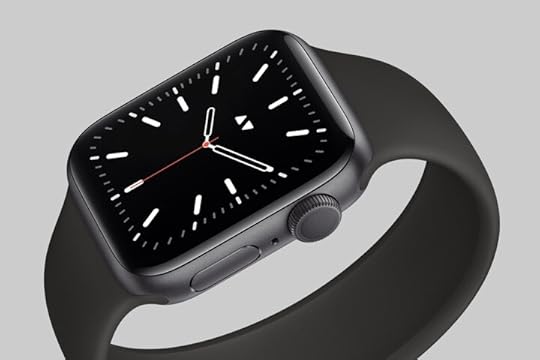
I can keep the same phone number for a nominal monthly fee, and it can operate without a phone if I opt for the cellular model. And I won’t lose my iMessages.
On YouTube, I discovered a bunch of videos with titles like “Can the Apple Watch Ultra replace my phone?”
Fantastic! I wasn’t the only asshole thinking about it!
I didn’t want to spend $800 on the ultra, but the $299 SE with cellular was a compelling option.
And after a month of use, I’m happy to report…
This actually works for me.
Can you fucking believe it?
I barely use my phone anymore. It’s there for car maps and music, and if I need it to take photos, but in that latter case, I’ll switch to airplane mode to discourage scrolling.
TEXTING? I love it. If there’s something urgent I need to respond to, I use voice-to-text. If it’s something that can wait, something I can respond to on my work computer later, I do that.
PHONE: Sometimes I’ll Dick Tracy it, but mostly I use a pair of AirPods or Bluetooth speakers. Bonus: when I talk to someone, I’m not scrolling distractedly.
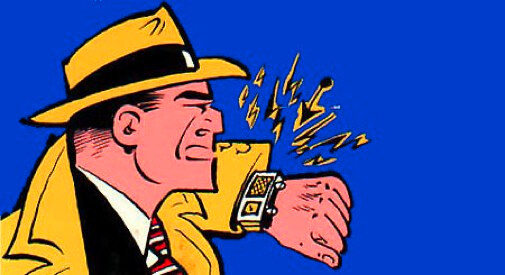
NOTES: I’ve been looking for a reason to abandon Evernote, and its lack of an Apple Watch app was my opportunity. I’ve switched to Bear and love it. If I have an idea I need to get down, I can whisper it into the watch, and it’ll transcribe it into a note.
CALENDAR: I use Fantastical, and there’s an app for the watch, no complaints.
MAIL: Fuck that. I haven’t linked my email and never will!
PHOTOS: There are a few photos I need access to for reminder-type things, and I have those favorites synced to my phone.
MUSIC: I have Apple Music and created a playlist that I sync to my phone for workouts (that I never get around to.) Outside of that, I like the health features. The strong app makes logging things at the gym easier.
But, the real benefit is reclaiming moments.
I went to a concert at the Greek theater the other night. It’s one of my favorite outdoor venues in LA. Not a bad seat in the house.
Before the music started, I got a text. I looked down at my wrist, saw it was nothing urgent that needed my response, and smiled.
If I had my phone on me, I would have responded to that text, maybe even had a conversation. Maybe someone in the audience would remind me of something I wanted to look up, something I wanted to buy on Amazon.
Without my phone, I sipped my cocktail and took in the beautiful Southern California breeze.
Thanks for reading Bobby Miller Time! Subscribe for free to receive new posts and support my work.
June 21, 2023
All the Time in the World
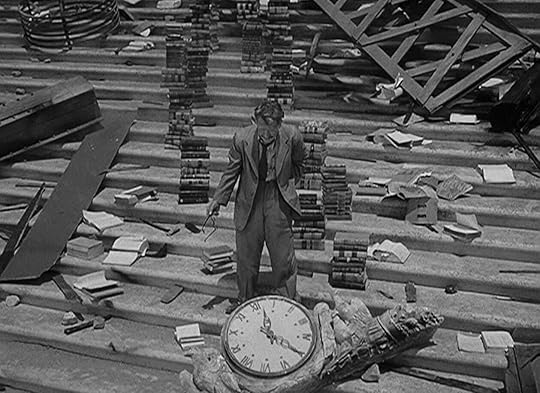
When my kid was six months old, a friend asked if becoming a parent changed me as a writer. He wanted me to say that my writing got deeper or more interesting. Instead, I shrugged and said, "There's never enough time.”
My kid is two years old, and even with daycare help, it still feels like there's never enough time. I know I can’t complain. I’m lucky to have a full-time job. Lucky to be a dad. Lucky to have any scrap of time to write.
Still.
I think about quitting sometimes. Putting aside the long-gestating TV & film projects, abandoning the novel. But then I get that scrap of time, a cup of coffee, and that hit of dopamine only writing can create. And I’m torn.
Whenever my toddler is sick, I get a peek into what an alternate life could look like. I don't bother to write when he’s ill. I do my job and be a dad. And it feels so stress-free. The battle, the arguments, for that scrap of time — gone.
I feel guilty writing this. Being a dad has filled me with a love I never knew possible. I’d straight up walk into traffic for this kid. The highs are incredible, a gift. My greatest accomplishment.
Still.
I look around.
The place needs painting.
The hot water is on the fritz.
The novel begs to be rewritten.
The doctor says I need to go to the gym.
The kid has a fever.
There’s never enough time.
I promised myself not to pass down bad traits to my son. But, sometimes, I complain about time in front of him. Sometimes I stop myself. Sometimes, I let er rip.
The other night, I was putting him to bed. We have a routine. I read a few books, and then we say goodnight to the inanimate objects in his room.
We had a late start, and I was trying to speed through the process. I wanted to edit some pages after he was asleep.
He could feel that energy seeping off me — kids always do.
He looked at me with the sweetest face in the world and said:
“We’re running out of time.”
I knew he wasn’t talking about life and death; he was probably just repeating something I said. But still, it felt profoundly sad for a two-year-old to say.
I rubbed his back, and he slowly drifted asleep.
“You're not running out of time,” I whispered. “You have all the time in the world.”
Thanks for reading Bobby Miller Time! Subscribe for free to receive new posts and support my work.
June 12, 2023
The DGA drops the ball on AI
It’s the near future.
You just made your first feature film, and somehow it did the impossible. It broke through. Critics loved it. Audiences loved it. Hell, it even made some money.
You try to get another project off the ground, but mid-budget original films no longer exist. You try to break into television, but studios only want TV directors in those positions.
You could keep making small films, but the budgets in that space shrink by the day.
Fuck it. You’re going to take the big swing. You’re going to direct a franchise movie based on pre-existing intellectual property. Sure, you’ve heard horror stories of directors getting micromanaged to an inch of their life, but it doesn’t scare you. You can handle it.
ENTER AI.
The DGA agrees to the following contract language regarding the technology:

The bit outlined in red gives you pause. Does this open the door to AI-generated art, you wonder? “Consultation with the director” suggests you have no authority over AI.
But, whatever, you’ve signed the big contract.
You’re directing Star Wars 203.
Suddenly there are whispers.
"We have some concept art we'd like to use in the film," the Corporation will say. "Our team loves it."
You discover the concept art was not designed by a human being but generated by AI. An exec brags about how easy it was to type into a text prompt.
You push back.
The Corporation says, “We’re doing this, though. Are we still cool? If not, a line of people can replace you.”
You think about it. Should you walk away?
You don’t. You decide to sell out the concept artists you dreamed about working with, the ones you follow on Instagram. Fuck them. This is your opportunity. Your big show. So what if they don’t get this movie?
You find out that the concept art and the screenplay have become datasets.
What does that mean?
It means a storyboard program can spit out your movie shot by shot, a blueprint for how the film will be made.
The Corporation asks if that’s okay with you.
You bristle. You say you storyboarded your first film by yourself and looked forward to working with a proper storyboard artist, maybe even a whole team, on your big-budget debut.
The Corporation explains they’ve already approved the new AI-generated storyboards. It’s been focus tested, and everyone loves them.
You could live with selling out concept artists. It’s such a niche thing. Who cares, right? But AI telling you where to place the camera seems like a bridge too far.
You check your DGA contract. The old one. The one before AI language was built into it, and you realize every creative decision is a consultation. The director has no authority unless they have “final cut” put into their deal.

You contact your lawyer, your agent. They all laugh at you. Of course, you don’t have final cut. Who gets that?
They tell you to buck up and get through it.
“You’ll get to do the sequel and make some real money.”
You contemplate why you got into this business, have too much to drink, and write an email to the Corporation. Yes, you write. AI can dictate how the film is shot.
You get on set and are informed that the actors have been digitally scanned from a previous Star Wars film. AI will generate most of their performances.
It’s just you now, a couple of actors, a green screen, and a list of shots you didn’t design. With concept art made off the backs of other uncompensated artists, typed into a prompt by an Exec who makes way more than you.
You look at the screenplay and realize something is wrong with the cover page.
There is no name on the screenplay. No written by credit.
You realize the screenplay is AI-generated.
“There are 202 other Star Wars films,” an AI manager explains. “We fed them into a computer and had a writer polish it at scale. They didn’t want credit for some reason.”
You buck up. Pop some pills to numb the pain. Go on autopilot.
You get through the shoot somehow, and everyone is happy. It’s the cheapest giant blockbuster anyone’s ever made.
A sequel is greenlit, and your agent calls you.
They have bad news.
The first film you “directed” has been fed into a dataset. A sequel is to be made without you. It will be completely AI-generated.
You will not be compensated for this, for no language in your 2023 DGA contract even mentions the scenario.
You want to scream but realize you’re reading a dumb website called BobbyMillerTime.com
This is all overblown, you think. Until you realize there’s an AI-generated documentary currently on Tubi:

Update: The DGA has ratified their agreement.
Thanks for reading Bobby Miller Time! Subscribe for free to receive new posts and support my work.

